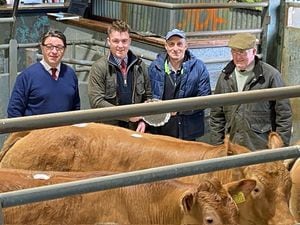Taking the waters – but in a sustainable way
On January 15 the Environment Agency published a consultation exercise on water management and abstraction licensing.

Among other things the document headlined proposals to increase the powers of the Environment Agency to revoke or vary abstraction licences without compensation.
The intention behind this is to encourage sustainable abstraction and increase equity between temporary licence holders and permanent licence holders. The two new proposals for variation are first where either environmental damage is being caused or has the potential to be caused, or secondly where the licence is unused or underused.
There are two further back drops to this. In our country the population is estimated to increase to 69.2 million people by mid-2026 and there is the potential for disruptive weather patterns due to global warming. Coincidentally the United Nations has recently underlined the risks posed by the collapse of biodiversity systems particularly relevant to insects, amphibians, and wetland mammals.
Part of the consultation process states the need for better water catchment bringing together the Environmental Agency’s concerns for abstraction and catchment groups. The aim is to modernise the system within a short time scale.
The first aim is to address unsustainable abstraction looking at 90 per cent of surface water abstraction and 77 per cent of ground water abstraction by 2021. The second aim is to end damaging abstraction from rivers and ground water where it is cost effective to do so. Latest data does show that work already carried out has achieved success in that 82 per cent of surface water and 72 per cent of ground water bodies have enough water to protect fish and other aquatic life.
More details are given as to the Environment Agency goals. More than half of time-limited extraction licences will be removed (approximately 2,300) to make sure these are not causing environmental damage. Adjusting all permanent licences shown to be seriously damaging is aimed to be carried out for 150 sites by March 2020.
There will be a revocation of 600 unused licences and further work with abstractors to reduce underused supplies. Work will be carried out to regulate all significant abstraction that has been historically exempt (approximately 5,000 sites) to make sure they pay their full part in protecting the water supply.
While this is only at the stage of consultation the proposals are highly likely to be largely implemented. The Environment Agency approvals may well produce considerable benefits for landowners and farmers as a whole. Additionally, harnessing of water from runoff or pumped in during wet periods may be enhanced with changes to the rules and possible Government financial support.
DEFRA has discussed the new potential farm entitlements as having to be tied to the provision of “public goods” and it would be hoped that the provision of water catchment with the linked potential for improving the environment can be given equal prominence and regarded as providing “public goods”.
Steven Corfield is a partner and agricultural specialist at Shropshire law firm FBC Manby Bowdler LLP.





